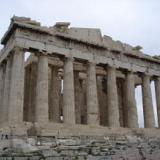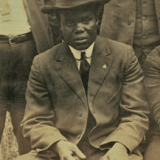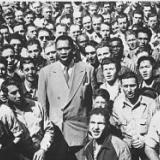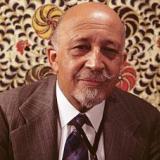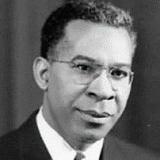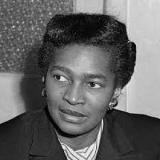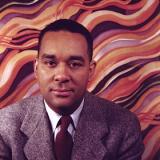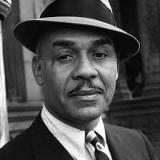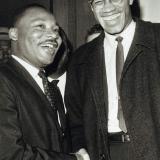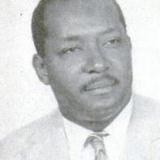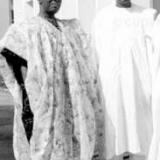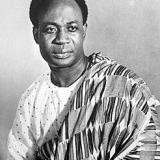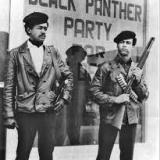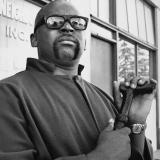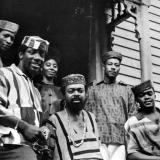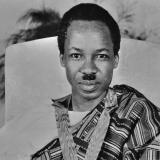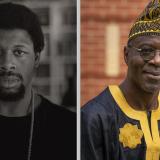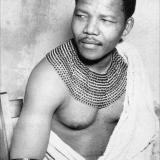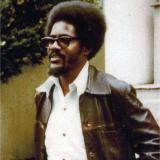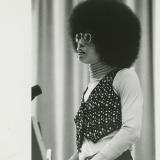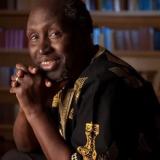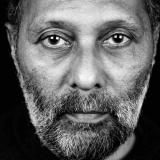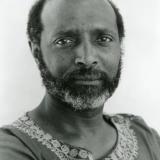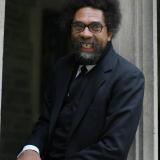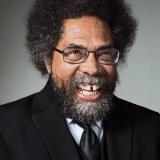Socialism
Posted on
In his masterpiece the Republic, Plato describes the ideal city and draws a parallel between this city and the just soul, with the three classes of the city mirroring the three parts of the soul. Peter discusses this parallel and the historical context that may have influenced Plato's political thought.
Posted on
Tommaso Campanella’s The City of the Sun and other utopian works of the Italian Renaissance describe perfect cities as an ideal for real life politics.
Posted on
Around the time of World War One, Hubert Harrison (pictured), A. Philip Randolph, and other black socialists argue that racial oppression is caused by capitalism.
Posted on
Vanessa Wills speaks to us about Marx and his Africana legacy, with a special focus on black women Marxists.
Posted on
The career of the multi-talented activist and performer Paul Robeson, and the place of the Negro spiritual in the Harlem Renaissance.
Posted on
Du Bois moves to the left, and revisits and refines older positions during the latter half of his very long life.
Posted on
Two Trinidadian political thinkers: sociologist Oliver Cox analyzes the nature of racial prejudice, and historian Eric Williams connects capitalism to slavery.
Posted on
Claudia Jones argues that Communism provides the remedy for racism and imperialism.
Posted on
Interview guest Carole Boyce Davies joins us to talk about the radical ideas of Claudia Jones.
Posted on
Famous for his incendiary novel Native Son, Richard Wright responds in his multifaceted writings to sociology, communism, colonialism, and existentialism.
Posted on
Ralph Ellison provides a new metaphor for the experience of racism in his Invisible Man and tackles topics of art and identity in his essays.
Posted on
Chike joins Peter to look back at our coverage of Africana philosophy in the first half of the 20th century.
Posted on
After 1963, the views of Malcolm X and MLK came closer together, on topics including internationalism, political engagement, and economics.
Posted on
The Cuban activist and author Juan Rene Betancourt urges racial solidarity and reckons with the revolution under Castro and the island’s turn towards Communism.
Posted on
Two Nigerian activists lead the struggle for independence, and clash over the competing values of national unity and ethnic diversity.
Posted on
The first leader of independent Ghana, Kwame Nkrumah, writes against neocolonialism and in favor of socialism and Pan-Africanism.
Posted on
The philosophical underpinnings of a “vanguard of revolution” led by Huey P. Newton, Bobby Seale, and Eldridge Cleaver: the Black Panther Party.
Posted on
The Pan-Africanist philosopher Maulana Karenga defends the importance of cultural revolution and invents the holiday Kwanzaa.
Posted on
African American literature of the late 1960s reflects the Black Power movement, in the works of such authors as Amiri Baraka, Nikki Giovanni, Haki Madhubuti, Larry Neal, and Sonia Sanchez.
Posted on
The first leader of independent Tanzania grounds his socialist ideas in traditional African values.
Posted on
Amílcar Cabral, leader of a revolution against colonialism in Guinea-Bissau and Cape Verde, rethinks culture and Marxist theory as bases for his struggle.
Posted on
Two scholars of the same name join us to shed further light on freedom fighter and political theorist Amílcar Cabral.
Posted on
The career and ideas of Nelson Mandela up to the time of his imprisonment, in the context of the founding of the African National Congress.
Posted on
Pan-Africanist and Marxist historian Walter Rodney rethinks Black Power, engages with Rastafari, and opposes racial division in his home country of Guyana.
Posted on
What is the message of the famous, but elusive, work Utopia, and how can it be squared with the life of its author?
Posted on
The eventful life and penetrating philosophy of Angela Davis, an icon of resistance deeply informed by Marxism and influential on black feminist thought.
Posted on
We bring the story of black feminism up to the turn of the century with the incisive works of bell hooks and Patricia Hill Collins.
Posted on
How one of Kenya's greatest writers came to argue that African literature should be written in African languages.
Posted on
Stuart Hall pioneers “cultural studies,” offering tools for analysis of films, television, fiction and music that were put to use by followers like Paul Gilroy and Hazel Carby.
Thanks to Glenn Adamson for his feedback on this episode!
Posted on
Cedric J. Robinson reflects on the power and limitations of Marxism while charting the past and prospects of black radical thought.
Posted on
An introduction to the thought of Cornel West, focusing on his early essay “Philosophy and the Afro-American Experience.”
Posted on
Cornel West joins us to look back on the development of his thought and the many authors who have inspired him.

